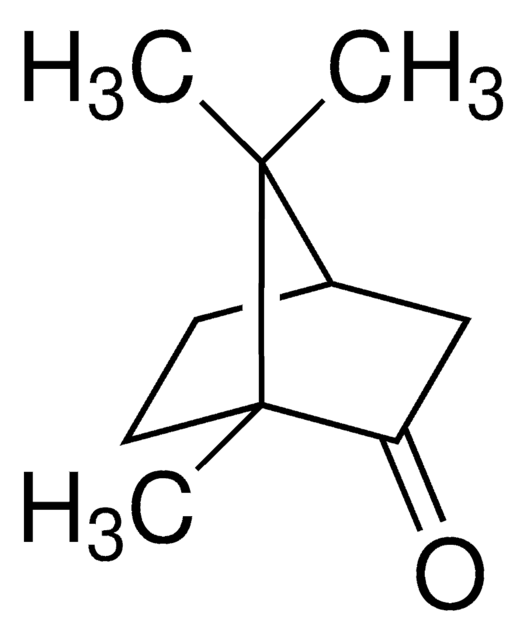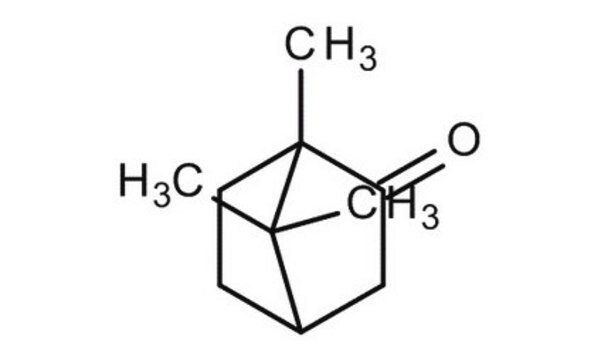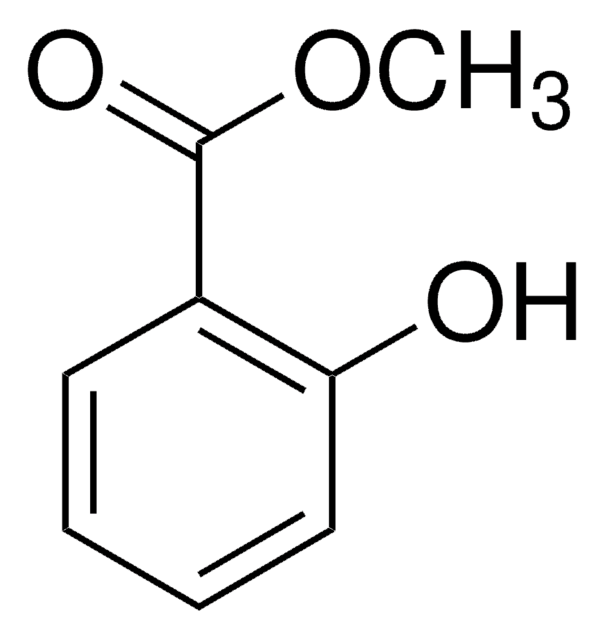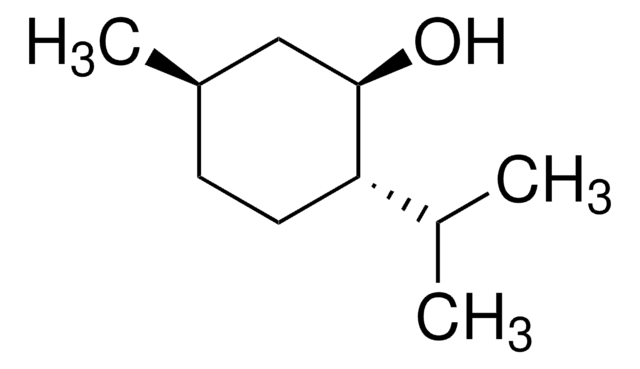C0405000
Camphor (racemic)
European Pharmacopoeia (EP) Reference Standard
Synonyme(s) :
(±)-Camphor, 1,7,7-Trimethylbicyclo[2.2.1]heptan-2-one
About This Item
Produits recommandés
Qualité
pharmaceutical primary standard
Densité de vapeur
5.2 (vs air)
Pression de vapeur
4 mmHg ( 70 °C)
Famille d'API
camphor
Limite d'explosivité
3.5 %
Fabricant/nom de marque
EDQM
Point d'ébullition
204 °C (lit.)
Pf
175-177 °C (lit.)
Application(s)
pharmaceutical (small molecule)
Format
neat
Chaîne SMILES
[H][C@](CC1=O)(CC2)C(C)(C)[C@]12C
InChI
1S/C10H16O/c1-9(2)7-4-5-10(9,3)8(11)6-7/h7H,4-6H2,1-3H3/t7-,10+/m1/s1
Clé InChI
DSSYKIVIOFKYAU-XCBNKYQSSA-N
Vous recherchez des produits similaires ? Visite Guide de comparaison des produits
Description générale
Application
Conditionnement
Autres remarques
Produit(s) apparenté(s)
Mention d'avertissement
Danger
Mentions de danger
Conseils de prudence
Classification des risques
Acute Tox. 4 Inhalation - Aquatic Chronic 2 - Eye Dam. 1 - Flam. Sol. 2 - Skin Irrit. 2 - STOT SE 2 Inhalation
Code de la classe de stockage
4.1B - Flammable solid hazardous materials
Classe de danger pour l'eau (WGK)
WGK 1
Point d'éclair (°F)
147.9 °F - closed cup
Point d'éclair (°C)
64.4 °C - closed cup
Faites votre choix parmi les versions les plus récentes :
Certificats d'analyse (COA)
Désolés, nous n'avons pas de COA pour ce produit disponible en ligne pour le moment.
Si vous avez besoin d'assistance, veuillez contacter Service Clients
Déjà en possession de ce produit ?
Retrouvez la documentation relative aux produits que vous avez récemment achetés dans la Bibliothèque de documents.
Les clients ont également consulté
Protocoles
-3,7-Dimethyl-2,6-octadien-1-ol; Neral; Geraniol; Geranial; Undecanal; Citronellyl acetate; Neryl acetate; 3,7-Dimethyl-2,6-octadienyl acetate; 1-Tetradecene; Tetradecane; α-Bisabolol
Notre équipe de scientifiques dispose d'une expérience dans tous les secteurs de la recherche, notamment en sciences de la vie, science des matériaux, synthèse chimique, chromatographie, analyse et dans de nombreux autres domaines..
Contacter notre Service technique









